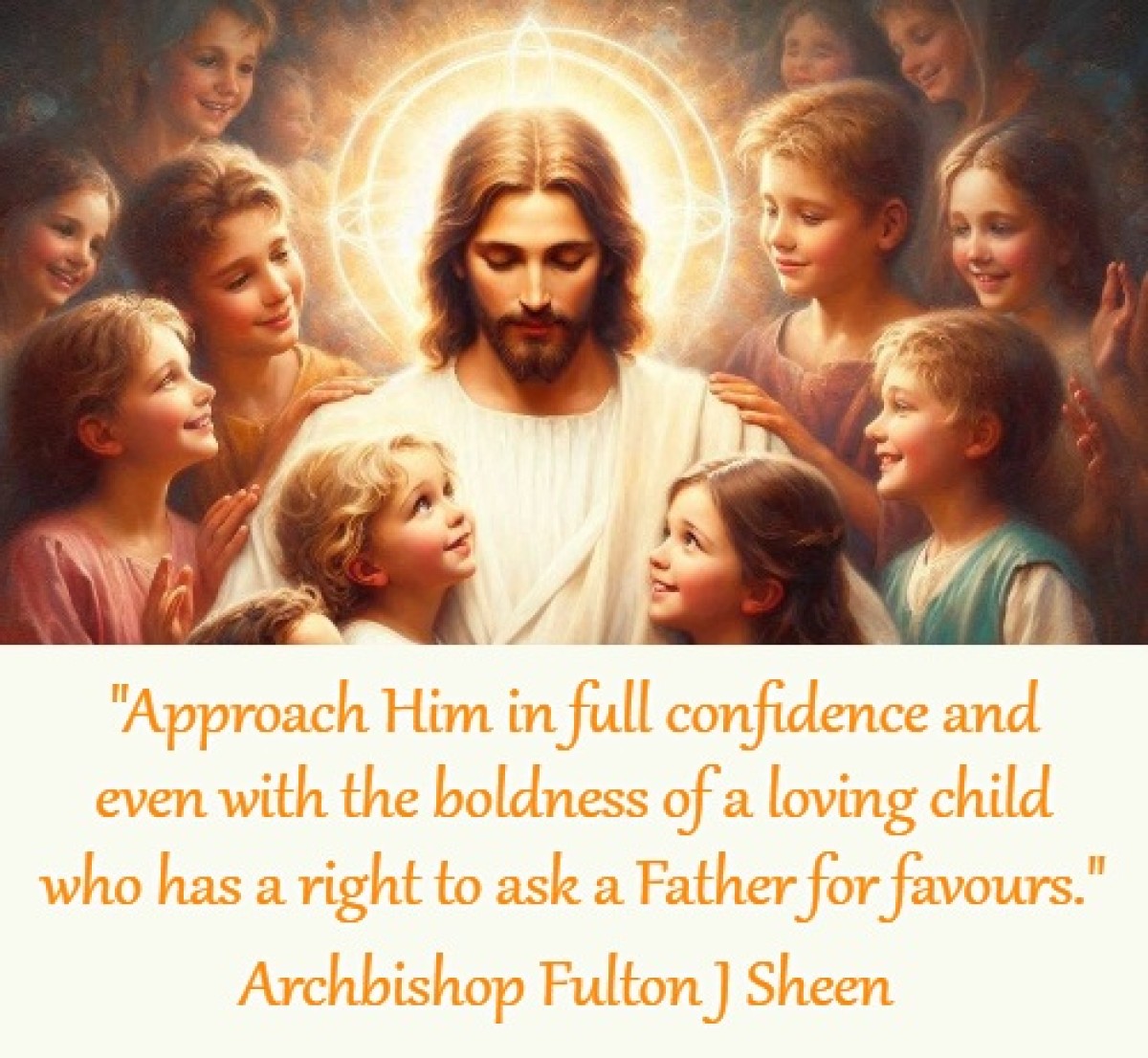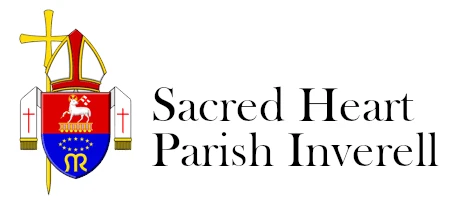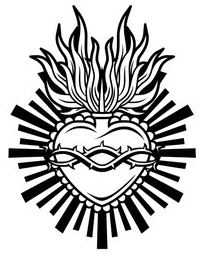Third Sunday of Advent (Year C) / Gaudete Sunday - 15 December 2024
15th December 2024

“Happiness is to be found only in the home where God is loved and honoured, where each one loves, and helps, and cares for the others.” Blessed Théophane Vénard
Gaudete is a Latin word that means “You shall rejoice!” This name is taken from the entrance antiphon for Sunday’s Mass, which is also echoed in the second reading from the letter of St Paul’s letter to the Philippians. It is a reminder that the Advent season is a season of Joy because our salvation is already at hand.
A reflection on the theme of today's Readings by the Venerable Archbishop Fulton J Sheen:
"If you are unhappy, or sad, or despondent, it is basically for only one reason: you have refused to respond to Love’s plea, ‘Come to Me, all you that labour and are burdened, and I will refresh you. Take up My yoke upon you and learn of Me, because I am meek, and humble of heart: and you shall find rest to your souls’ (Matthew 11:29-29). Everywhere else but in Him, the liberation promised is either armed or forced, and that can mean slavery. Only nailed love is free. Unnailed and uncrucified love can compel. Hands pinioned to a wooden beam cannot compel, nor can a lifted Host and an elevated Chalice constrain, but they can beckon and solicit.
"That kind of love gives you these three suggestions for living in troubled times:
"1. Never forget that there are only two philosophies to rule your life: the one of the Cross, which starts with the fast and ends with the feast. The other of Satan, which starts with the feast and ends with the headache. Unless there is the Cross, there will never be the empty tomb; unless there is a Good Friday, there will never be an Easter Sunday. In the beautiful assurance of Our Lord: ‘Amen, amen, I say to you, that you shall lament and weep, but the world shall rejoice: and you shall be made sorrowful, but your sorrow shall be turned into joy.’ (John 16:20)
"2. When bereavement comes, and when the ‘slings and arrows of outrageous fortune’ strike, when like Simon of Cyrene a cross is laid on your reluctant shoulders, take that Cross to daily Mass and say to Our Lord at the moment of consecration: ‘As Thou my Saviour in love for me did say, ‘This is My body! This is My blood!’ so I say to Thee, ‘This is my body! Take it. This is my blood! Take it. They are yours. I care not if the accidents or species of my life remain, with my daily work, my routine duties. But all that I am substantially, take, consecrate, ennoble, spiritualise; turn my cross into a Crucifix, so that I am no longer mine, but Thine, O Love Divine!’
"3. Think not of Almighty God as a kind of absentee landlord with Whom you hardly dare to be familiar, or to Whom you go to fix your leaks, or to get yourself out of a mess. Think neither of God as an insurance agent, Who can protect you against loss by fire. Approach Him not timidly as an assistant might approach the boss for a raise, fearful, half believing that you will never receive what you seek. Do not fear Him with a servile fear, for God is more patient with you than you are with yourself. Would you, for example, be as patient with the wicked world today as He is? Would you even be as patient with anyone else who had the same faults as you? Rather, approach Him in full confidence and even with the boldness of a loving child who has a right to ask a Father for favours.
"Though He may not grant all your wants, be sure that, in a certain sense, there is no unanswered prayer. A child asks his father for something that may not be good for him, eg. a gun. The father, while refusing, will pick up the child in his arms to console him, giving the response of love, even in the denial of a request. As the child forgets in that embrace that he ever asked a favour, so in praying you forget what you wanted by receiving what you needed – a return of love. Do not forget either that there are not two kinds of answers to prayer, but three: One is ‘Yes.’ Another is ‘No.’ The third is ‘Wait.’
"You will find that, as you pray, the nature of your request will change. You will ask fewer and fewer things for yourself and more and more for His love. Is it not true in human relationships that the more you love someone, the more you seek to give and the less you desire to receive? The deepest love never says: ‘Give me,’ but it does say: ‘Make me.’ You probably think that if Our Lord came into your room some night as you are praying, you would ask Him favours, or present your difficulties, or say: ‘When will the war end?’ or ‘Give me a million.’
"No! You would throw yourself on your knees and kiss the hem of His garment. And the moment He laid His hands on your head, you would feel such a peace and trust and confidence – even in darkness – that you would not even remember you had questions to ask, or favours to beg. You would consider them a kind of desecration. You would want only to look into His face, and you would be in a world which only lovers know. That would be the only Heaven you wanted!"
(Seven Words of Jesus and Mary)
Joy Candle
The third candle of Advent symbolises Joy and is called the “Shepherd’s Candle”. To the shepherd’s great joy, the angels announced that Jesus came for humble, unimportant people like them too. In liturgy, the colour rose signifies rejoicing. This candle reminds us that Jesus’ coming is near.
Prayer for the Third Week of Advent
Our Father, we wait in joyful anticipation for the fulfilment of Your promises to us! We await the coming of Jesus Christ, Your heavenly gift to all humankind. Give us the strength to remain steadfastly devoted to You during this time of holy preparation. Let it be done according to Thy will. Amen. 💐💖🙏


